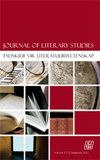Rethinking the Concept of Double Consciousness in Du Bois’ The Souls of Black Folks (1903)
IF 0.2
4区 文学
0 LITERARY THEORY & CRITICISM
引用次数: 0
Abstract
Summary In an essay titled “Of our spiritual strivings”, W.E.B. Du Bois coined and elaborated the concept of “double consciousness” to refer to the ambiguity of being black and American. The ambivalence and unstable identities suggested by the term imply living a life characterised by seemingly irreconcilable dualities. On the one hand, blacks are entitled to become Americans because the slave labour they were forced to provide created the material and economic basis of modern America. On the other hand, the black people who created the wealth of the American nation find themselves marginalised or occupying low-paying jobs, leading to the condition of double consciousness being seen as a hindrance to the progress of the black race. In the American South, before the emancipation of slaves, black people were raped, racially segregated, lynched, and denied equal opportunities. Du Bois explains the ruthless experiences that the Negroes endured because of double consciousness as he asserts that the feeling of both belonging and not belonging to America often sent black people to court; thus, false gods invoking false means of salvation. At times blacks felt ashamed of themselves. Du Bois perceives the evil experiences endured by black people as concretised in the musical form of the Negro Spirituals. An analysis of selected songs suggests that these songs are the most beautiful expression of human experience because the songs manifest an awareness of the self that is more than the two-ness implied in the concept of double consciousness. The paradox indicated above confirms double consciousness as on one level a source of evil experiences of the Negroes, and on another, positive level, the condition that enabled them to fashion new discourses of resistances in order to express their desire to escape slavery. This article uses Gilroy’s notion of the ambiguity of modernity in fashioning identities of the Black Atlantic in order to rethink the idea of double consciousness, and at the same time amplify the multiple ways in which black people experienced slavery in America.杜波依斯《黑人的灵魂》(1903)中双重意识概念的再思考
杜波依斯在一篇名为《我们的精神奋斗》的文章中,创造并阐述了“双重意识”的概念,用以指代黑人和美国人的模糊性。这个词所暗示的矛盾和不稳定的身份意味着生活在一种看似不可调和的二元性的生活中。一方面,黑人有资格成为美国人,因为他们被迫提供的奴隶劳动创造了现代美国的物质和经济基础。另一方面,创造了美国国家财富的黑人却被边缘化,或者从事低薪工作,导致双重意识的状况被视为黑人种族进步的障碍。在美国南方,在奴隶解放之前,黑人被强奸,种族隔离,私刑,并被剥夺了平等的机会。杜波依斯解释了黑人因为双重意识而忍受的残酷经历他断言,属于和不属于美国的感觉经常把黑人送上法庭;因此,虚假的神调用虚假的拯救手段。黑人有时为自己感到羞耻。杜波依斯认为黑人所承受的邪恶经历具体表现在黑人灵歌的音乐形式中。对精选歌曲的分析表明,这些歌曲是人类经验最美丽的表达,因为这些歌曲表现出对自我的意识,而不仅仅是双重意识概念所隐含的两面性。上述悖论证实了双重意识,一方面是黑人邪恶经历的根源,另一方面是积极的,使他们能够形成新的抵抗话语,以表达他们逃离奴隶制的愿望。本文运用吉尔罗伊的现代性模糊概念塑造黑人大西洋的身份,以重新思考双重意识的概念,同时放大黑人在美国经历奴隶制的多种方式。
本文章由计算机程序翻译,如有差异,请以英文原文为准。
求助全文
约1分钟内获得全文
求助全文
来源期刊

Journal of Literary Studies
Multiple-
CiteScore
0.50
自引率
0.00%
发文量
0
期刊介绍:
The Journal of Literary Studies publishes and globally disseminates original and cutting-edge research informed by Literary and Cultural Theory. The Journal is an independent quarterly publication owned and published by the South African Literary Society in partnership with Unisa Press and Taylor & Francis. It is housed and produced in the division Theory of Literature at the University of South Africa and is accredited and subsidised by the South African Department of Higher Education and Training. The aim of the journal is to publish articles and full-length review essays informed by Literary Theory in the General Literary Theory subject area and mostly covering Formalism, New Criticism, Semiotics, Structuralism, Marxism, Poststructuralism, Psychoanalysis, Gender studies, New Historicism, Ecocriticism, Animal Studies, Reception Theory, Comparative Literature, Narrative Theory, Drama Theory, Poetry Theory, and Biography and Autobiography.
 求助内容:
求助内容: 应助结果提醒方式:
应助结果提醒方式:


